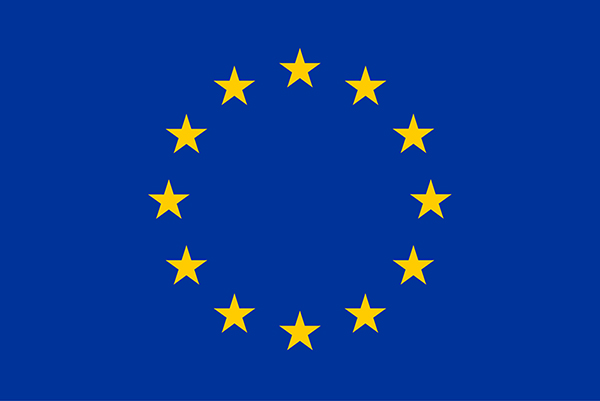Notions of freeness
Mini-workshop in Saarbrücken, April 11 - April 15, 2016

|

|
Funded by the ERC Advanced Grant Non-Commutative Distributions in Free Probability |
Organized by Roland Speicher and Guillaume Cébron.
Participants
Aim of the workshop
Accommodation
Schedule
Talks & Abstracts
Speakers
- Arizmendi, Octavio (CIMAT, Mexico)
- Belinschi, Serban (Université Paul Sabatier, Toulouse)
- Cebron, Guillaume (Saarland Universität)
- Dahlqvist, Antoine (University of Cambridge)
- Fevrier, Maxime (Université Paris-Sud 11)
- Friedrich, Roland (Saarland Universität)
- Gabriel, Franck (University of Warwick)
- Male, Camille (Université Paris 5)
- Marcus, Adam (Princeton University)
- Mingo, Jamie (Queen's University, Kingston)
- Nica, Andu (University of Waterloo)
- Redelmeier, Emily (Toronto, Canada)
- Shlyakhtenko, Dima (University of California, Los Angeles)
- Speicher, Roland (Saarland Universität)
- Voiculescu, Dan (University of California, Berkeley)
Aim of the workshop
The idea of the workshop is to bring together people who are interestedin generalized notions of distributions and of freeness arising from random matrices
Some emphasis will be on the following notions:
- second and higher order freeness (definition);
- traffic freeness (definition);
- partition freeness ($\mathcal{P}$, $\mathcal{B}$ or $\mathfrak{S}$ freeness - definition);
- infinitesimal freeness (definition);
- finite free probability and polynomial convolutions (definition).
This implies to have some open problem sessions, more time for private
discussions around the talks and emphasis on future questions.
Accommodation
All participants are accommodated in Motel One downtown Saarbruecken. Fur further information how to get to the hotel and how to get to the math department, see our webpage with information for visitors.Schedule
Each talk consists of 50 minutes plus 10 minutes discussion.All lectures take place in lecture hall IV, building E2 4. This lecture hall is equipped with a projector and blackboards.
The coffee breaks and the reception are on ground floor. The seminar rooms Seminarraum 6 and Seminarraum 7 (in the same building) can be used for private discussions during the conference.
Here is a pdf version of the program (will be distributed in printed form also during the reception).
Monday, 11 April
|
10:00 11:00 2:00 pm 3:00 pm 3:30 pm |
Reception in the basement of building E2 4 Voiculescu Arizmendi Coffee Dahlqvist |
|
10:00 11:00 11:30 12:00 2:00 pm 3:00 pm 3:30 pm |
Male Coffee Problems Gabriel Marcus Coffee Nica |
|
10:00 11:00 11:30 12:00 2:00 pm 7:00 pm |
Shlyakhtenko Coffee Problems Fevrier Free afternoon or excursion Dinner |
|
10:00 11:00 11:30 12:00 2:00 pm 3:00 pm 3:30 pm |
Belinschi Coffee Problems Cebron Redelmeier Coffee Friedrich |
|
10:00 11:00 11:30 |
Mingo Coffee Speicher |
Talks & Abstracts
- Arizmendi, Octavio (CIMAT, Mexico)
On the asymptotic distribution of block-modified random matricesWe study random matrices acting on tensor product spaces which have been transformed by a linear block operation. Using operator-valued free probability theory, under some mild assumptions on the linear map acting on the blocks, we compute the asymptotic eigenvalue distribution of the modified matrices in terms of the initial asymptotic distribution. Moreover, using recent results on operator-valued subordination, we present an algorithm that computes, numerically but in full generality, the limiting eigenvalue distribution of the modified matrices. Our analytical results cover many cases of interest in quantum information theory: we unify some known results and we obtain new distributions and various generalizations. This is joint work with Ion Nechita and Carlos Vargas. - Belinschi, Serban (Université Paul Sabatier, Toulouse)
Spikes/outliers for polynomials in unitarily invariant random matricesConsider a selfadjoint polynomial $P$ in two noncommuting selfadjoint indeterminates. Let $A_N^{(1)}$ and $A_N^{(2)}$ be two deterministic $N\times N$ selfadjoint matrices with complex entries. Assume that each of the two matrices converges in distribution (wrt the canonical normalized trace) to a bounded operator $a_j, j=1,2,$ in some finite von Neumann algebra. Suppose in addition that all eigenvalues of $A_N^{(1)}$ converge to the spectrum of $a_1$ and all but $k$ of the eigenvalues of $A_N^{(2)}$, for a fixed non-negative integer $k$, converge to the spectrum of $a_2$, while these $k$ eigenvalues converge to points outside the spectrum of $a_2$. If $U_N$ is an $N\times N$ Haar distributed random unitary, it is known from results of D. Voiculescu and of R. Speicher that the random matrices $P(A_N^{(1}},U_NA_N^{(2)}U_N^*)$ converge in distribution to $P(a_1,a_2)$, where the operators $a_1$ and $a_2$ are free. This result has been considerably strengthened by B. Collins and C. Male under the hypothesis that $k=0$: in particular, under this hypothesis, all eigenvalues of $P(A_N^{(1}},U_NA_N^{(2)}U_N^*)$ converge almost surely to the spectrum of $P(a_1,a_2)$. This talk will answer the following questions: - Are there eigenvalues of the random operator $P(A_N^{(1}},U_NA_N^{(2)}U_N^*)$ that converge almost surely to points outside the spectrum of $P(a_1,a_2)$? If Yes,
- Where do they converge, and what can be said about the eigenvectors corresponding to them?
- Cebron, Guillaume (Saarland Universität, Saarbrücken)
Random matrix model for boolean independenceI will present forthcoming applications of the theory of traffics of Camille Male. In particular, I will introduce a random matrix model for the boolean independence and the monotone independence. This is joint work with Camille Male and Antoine Dahlqvist. - Dahlqvist, Antoine (University of Cambridge)
Free Brownian motion of higher order and free Brownian bridgesI shall discuss in this talk about the notion of free unitary Brownian motion of higher order and free unitary Brownian bridges. I will define the former and describe ongoing work on the latter, giving conjectures claiming that it should appear as the limit of a matrix model, that does not a priori belong to a « classical » free probability framework. - Fevrier, Maxime (Université Paris-Sud 11)
Some aspects of infinitesimal freenessIn this talk, we plan to review the definition of infinitesimal freeness and several aspects of it, including its connection to freeness, to a very simple instance of freeness with amalgamation, to conditional freeness, etc. - Friedrich, Roland (Saarbruecken)
Formal group laws related to notions of independenceIn this talk we discuss the relation known forms of independence have with formal group laws. We show that universal convolution products of moments of independent random variables defined on graded connected dual semigroups, are given by projective limits of nilpotent commutative Hopf algebras. Within this framework moment-cummulant formulae have a natural and universal interpretation in terms of the Baker-Campbell-Hausdorff series. - Gabriel, Franck (University of Warwick)
Shur-Weyl-Jones duality and permutation invariant random matrices.The partition algebra is the natural set which replaces the non-crossing partitions for the study of large permutation invariant random matrices: it allows to define cumulants which play the role of free cumulants. Using the Shur-Weyl-Jones duality, we can also define cumulants for finite dimensional random matrices. This allows to define the notion of asymptotic $\mathcal{P}$-freeness. We will see some results such that generalized formulas for sum and product of asymptotic $\mathcal{P}$-free random matrices, convergence of permutation invariant Lévy processes, algebraic fluctuations, ... We will sketch also how this framework allows us to prove in a free probabilistic way the generalized convergence of random walks on large symmetric group: the limit defines a multiplicative $\mathcal{P}$-free Lévy process which is not a free Lévy process. - Male, Camille (Université Paris 5)
Recent progress in traffics theoryThe notion of "traffic independence" initially emerged during my thesis from a result on the limiting distribution of independent random matrices invariant by conjugation by permutation matrices. This relation encodes free, tensor and Boolean independence. In collaboration with Cébron and Dahlqvist, we have constructed rigorously the product of spaces of traffics and studied the cases of unitarily invariant spaces. This leads to a better understanding of the relation between traffic theory and free probability theory and the result that any *-probability space can be canonically endowed with the structure of spaces of traffics. This also gives new applications for unitarily invariant matrices, namely asymptotic freeness of an ensemble of matrices with the transposed ensemble (recovering a result of Popa) and the degree ensemble, and asymptotic freeness of the tensor product of ensemble with their transpose. Moreover, two applications developed recently will be present if time allows. In collaboration with Péché, we studied the asymptotic properties of large graphs with large degree. In collaboration with Desgroseilliers and Lévêque, we studied the lack of asymptotic free independence of diagonal matrices conjugated by the Fast Fourier Transform unitary matrix. - Marcus, Adam (Princeton University)
Polynomial convolutions and (free) finite probabilityMy talk will focus on applications of free probability to finite problems. While results in this area are historically viewed primarily as giving asymptotic information, recent results have shown that many finite problems exhibit the same types of behavior. In particular, I will discuss a powerful technique from functional analysis, known as Restricted Invertibility, and show that it is the finite analogue of the free Poisson limit theorem. I will then try to discuss some other finite topics that seem to be natural candidates for this sort of "finitization", with the hope that other participants will have ideas on how to extend these techniques to other areas of free probability. - Mingo, Jamie (Queen's University, Kingston)
Second Order Cumulants of Wishart MatricesWe consider the second order cumulants of Wishart matrices and their partial transposes. We will mainly discuss the Gaussian case but we have some results in the case of more general distributions. - Nica, Andu (University of Waterloo)
Eta-diagonal distributions, and infinite divisibility for R-diagonalsI will present a joint work with Hari Bercovici, Mike Noyes and Kamil Szpojankowski, where we look at R-diagonal *-distributions, and we consider the concept of infinite divisibility for such a distribution with respect to the operation of free additive convolution. We study this concept by using the method of the Boolean Bercovici-Pata (BBP) bijection, which relates free additive convolution to the simpler operation of Boolean additive convolution. To this end, it is natural to introduce a class of "eta-diagonal distributions", which are the counterpart of the R-diagonal ones, in the parallel world of Boolean probability. By using eta-diagonal distributions and BBP we obtain a natural parametrization for the set of infinitely divisible R-diagonal distributions which can arise in a $C^{*}$-probability space; every such distribution is parametrized by a pair of compactly supported probability measures on $[ 0, \infty )$. We point out some examples, and some immediate applications of this parametrization. - Redelmeier, Emily (Toronto, Canada)
Combinatorics of higher-order interactions of matrix cumulantsMatrix cumulants may be interpreted as quantities associated with terms in a topological expansion. This interpretation suggests that matrix cumulants may be divided into vertex contributions and contributions from interactions between vertices. In the large-matrix limit, these terms are higher-order free cumulants. I will discuss matrix cumulants and the topological expansion, focusing on the real and quaternionic cases. I will also discuss the combinatorics of higher-order interaction terms, their asymptotics, and connections with higher-order freeness. - Shlyakhtenko, Dima (University of California, Los Angeles)
Free probability of type B and asymptotics of finite-rank perturbations of random matricesWe show that finite rank perturbations of certain random matrices fit in the framework of infinitesimal (type B) asymptotic freeness. This can be used to explain the appearance of free harmonic analysis (such as subordination functions appearing in additive free convolution) in computations of outlier eigenvalues in spectra of such matrices. - Speicher, Roland (Saarland Universität, Saarbrücken)
Mixtures of classical and free independence and their quantum symmetriesMlotkowski introduced in 2004 the notion of Lambda-freeness, which describes mixtures of classical and free independence. This notion was rediscovered by Speicher and Wysoczanski in a recent preprint, also featuring a description of mixed moments in terms of free cumulants. This inspired Speicher and Weber to introduce new classes of quantum groups which are related to such mixtures of independences via de Finetti theorems. - Voiculescu, Dan (University of California, Berkeley)
Topological free entropyI will take a look back at the topological version of free entropy based on norm-microstates. This will include a discussion of the associated topological free entropy dimension, some connections with potential theory, random matrices and some problems.
| Updated: 31 March 2015 Guillaume Cébron | Impressum |

